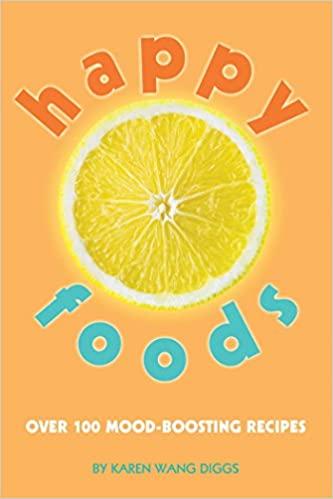Nourish Your Microbiome and Save the Planet
By Karen Wang Diggs
 At first glance, I know that the idea of a connection between your gut and being a superhero who takes part in saving the planet could be a bit of a stretch. Shall we say, hard to digest? But hopefully, by the time you reach the end of this article you will at least be receptive to the concept that we cannot take effective altruistic actions without first taking care of ourselves by way of our gut microbiome.
At first glance, I know that the idea of a connection between your gut and being a superhero who takes part in saving the planet could be a bit of a stretch. Shall we say, hard to digest? But hopefully, by the time you reach the end of this article you will at least be receptive to the concept that we cannot take effective altruistic actions without first taking care of ourselves by way of our gut microbiome.
Ever since the sequencing of the human genome in 2003, scientists have tried to come to grips with the fact that we are a lot less human than we thought we were. Coming in with just 21,000 genes, the human genome is less "complex" than the wheat plant, which has 26,000 genes, and we can’t even compare with the lowly water flea which has 31,000 genes!
Isn’t this shocking and humbling at the same time? But you see, we are not composed only of our genes. Each one of us is an ecosystem comprised of trillions of microbes that have evolved with us since the beginning of life on earth. So we are not alone; we never were and never will be. In fact, we cannot survive, let alone thrive without the symbiotic relationship with microbes. These trillions of co-inhabitants, composed of bacteria, virus, fungi, and archaea (single-cell prokaryotic microorganisms), contain 4.4 million genes, and collectively they are the microbiome.
Therefore, our genes in collaboration with the microbiome is really how we function as human beings. And in fact, they live in all areas of our bodily real estate from head to toe, inside and out. Put simply, we are less human, and more “other.” The concept of “self” as we know it does not exist, something mystics knew long ago: didn’t the Buddha mention something about “non-self”?
Let’s turn our attention to our gut, digestion, microbiome, and nourishment and see what it takes to keep everything healthy and happy so that we can save the planet.
Our digestive tract, which is about 30 feet long, contains a hefty quota of those trillions of microorganisms, some of which manufacture enzymes, vitamins, and other substances that aid the digestive process. Since digestion is the foundation of good health, we need to eat foods that will not only feed our human genes, but also our microbiome.
 Think of your “gutbiome” as the soil on which you grow and thrive. Just as a gardener or farmer needs healthy soil that contains bacteria, fungi, algae, and other organisms, we need a varied and balanced gut microbiome.
Think of your “gutbiome” as the soil on which you grow and thrive. Just as a gardener or farmer needs healthy soil that contains bacteria, fungi, algae, and other organisms, we need a varied and balanced gut microbiome.
How do we use this information in a day-to-day manner which will actually be of benefit to ourselves, others, and Mother Earth? If you want to engage in any act of positive change, you need to feel well and emotionally balanced; especially now, in the time of a pandemic, we need to keep our immunity strong.
In addition to a clean diet free of pesticides, the inclusion of fermented foods such as sauerkraut, pickles, kimchi, and yogurt, or fermented beverages such as water kefir or kombucha, is the key to adding bio-available probiotics to your gut.
The undisputed health benefits of eating fermented foods are now accepted in a cross section of disciplines: science (microbiology), medicine (allopathic and holistic), and culinary. It is a class of food that more and more people are learning about and getting excited to start making and using their own.
Fermenting does some of the digestive work for you, so it makes a lot of foods more digestible and the nutrients in them more bioavailable.
— Dr. Andrew Weil
Here is just a short list of the health benefits provided by live-cultured foods:
- Memory: Sauerkraut contains choline, an amino acid needed for good liver health and the production of acetylcholine. It's a neurotransmitter that helps with memory and is protective against Alzheimer’s.
- Vitamin C: Fermented vegetables contain large amounts of vitamin C. This common yet overlooked vitamin is one of the most critical nutrients for the immune system, good vision, and buffering stress.
- Minerals: Lacto-fermentation increases the bio-availability of minerals present in food, such as manganese, calcium, and potassium.
- Bacteriocins: Lactobacilli competes with harmful bacteria such as shigella, salmonella, and e.coli. Therefore, eating fermented vegetables on a regular basis protects against these pathogens.
- Improves digestion: As people age, the production of hydrochloric acid is reduced, which means that the stomach is less able to properly digest food. Lacto-fermented foods help increase the action of hydrochloric acid, while also protecting the integrity of the stomach lining.
Single-cell organisms started life on earth and they are still thriving in, on, and all around us. So, let’s rekindle our primordial, ancient symbiotic relation with them. Let’s initiate a new paradigm in which we think in terms of “we” and “us,” which includes the microscopic forms of life supporting our wellbeing. Nourishing our microbiome is the foundation of whatever work we are doing to protect our beautiful planet.
 Karen Wang Diggs is a classically trained chef, certified nutritionist, the author of Happy Foods: Over 100 Mood Boosting Recipes, and the Chief Fermentation Officer of Kraut Source.
Karen Wang Diggs is a classically trained chef, certified nutritionist, the author of Happy Foods: Over 100 Mood Boosting Recipes, and the Chief Fermentation Officer of Kraut Source.
After graduating from the California Culinary Academy, she worked for the Mandarin Oriental Hotel in Hong Kong and also helped open several restaurants there. After seven years of honing her culinary skills, Karen returned to the Bay Area and shifted away from the crazy restaurant world. That’s when she found Bauman College, and returned to school to gain her certification in holistic nutrition.
Thanks to her time at Bauman College, Karen learned the incredible health benefits of fermented foods and became obsessed with designing a fermentation system that would encourage more people to make their own sauerkraut and pickles at home. It was her obsession that led to the simple but elegant solution of Kraut Source: Fermentation Made Simple, which enables fermentation using wide-mouth mason jars.
Click here to visit Karen's website.
Catalyst is produced by The Shift Network to feature inspiring stories and provide information to help shift consciousness and take practical action. To receive Catalyst twice a month, sign up here.
This article appears in: 2020 Catalyst, Issue 19: Plant Medicine for Modern Epidemics Summit



